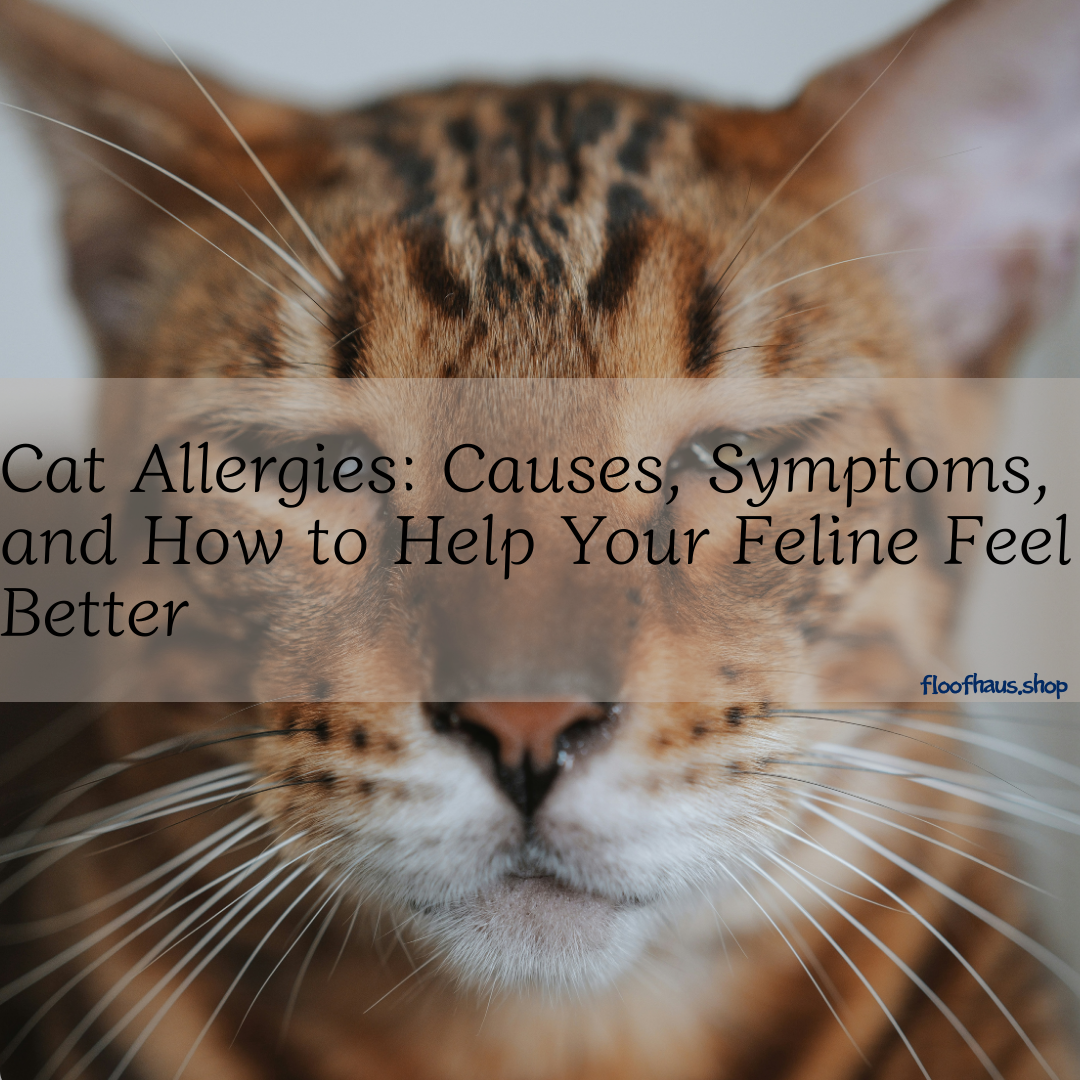
Cat Allergies: Causes, Symptoms, and How to Help Your Feline Feel Better
Share

Many pet owners are surprised to learn that cats can suffer from allergies just like humans. From sneezing and itchy skin to digestive issues, cat allergies can affect your feline’s comfort and overall health. Understanding the causes, recognizing the symptoms, and finding safe solutions is key to giving your cat a better quality of life.
What Are Cat Allergies?
Allergies occur when the immune system reacts to substances that are normally harmless. In cats, allergens can come from the environment, food, or even parasites. The most common triggers include:
- Fleas – Flea bites can cause intense itching and skin irritation.
- Food – Some cats are allergic to specific proteins, dairy, or grains.
- Environmental factors – Pollen, mold, dust mites, and cigarette smoke can all trigger reactions.
- Household products – Certain cleaning supplies, laundry detergents, or scented litters may irritate sensitive cats.
Symptoms
Cat allergies often mimic other health problems, so it’s important to pay close attention to the signs. Common symptoms include:
- Excessive scratching or licking
- Red, inflamed, or scabbed skin
- Sneezing, coughing, or wheezing
- Watery eyes or nasal discharge
- Vomiting or diarrhea (common in food allergies)
- Hair loss or patchy fur
If your cat shows any of these symptoms, schedule a vet visit to rule out other conditions and confirm whether allergies are to blame.
Diagnosing
Veterinarians typically use a combination of medical history, physical exams, and testing to pinpoint allergies. Approaches may include:
- Elimination diets for suspected food allergies
- Skin tests to check for environmental allergens
- Blood tests to measure immune responses
Accurate diagnosis is essential, since treating symptoms without addressing the underlying cause often leads to recurring issues.
Treatment Options
Managing allergies usually requires a multi-pronged approach. Some common strategies include:
- Flea prevention – Using vet-approved flea control treatments.
- Diet changes – Switching to hypoallergenic or limited-ingredient food.
- Medication – Antihistamines, corticosteroids, or immune-modulating drugs prescribed by a veterinarian.
- Environmental control – Reducing dust, pollen, and smoke exposure.
- Hypoallergenic litter – Unscented, dust-free options can ease respiratory issues.
Natural Remedies and At-Home Care
In addition to veterinary care, small lifestyle changes can make a big difference:
- Regular grooming to reduce allergens on your cat’s coat.
- Air purifiers to improve indoor air quality.
- Frequent cleaning of bedding and toys.
- Keeping windows closed during high-pollen seasons.
- Providing a balanced diet rich in omega-3 fatty acids for skin health.
While natural remedies may help, always consult a vet before making significant changes.
How floofhaus Supports Cat Health
At floofhaus.shop, we know how important it is to keep cats comfortable and allergy-free. That’s why we offer:
- Unscented, hypoallergenic litter that reduces respiratory triggers.
- Air purifiers and cleaning supplies safe for sensitive pets.
- Grooming tools and bedding designed to minimize dander and allergens.
- Specialized feeders and supplements that support digestive and skin health.
Creating a healthier home environment is one of the most effective ways to reduce allergic flare-ups and keep your cat happy.
When to See a Veterinarian
While some mild allergies can be managed at home, it’s important to see a vet if your cat experiences:
- Persistent itching or skin wounds
- Ongoing respiratory issues
- Sudden weight loss or appetite changes
- Chronic vomiting or diarrhea
Prompt veterinary attention ensures that your cat gets the right treatment before symptoms worsen.
Final Thoughts
Allergies are more common than many owners realize, but with the right care, your feline can still live a comfortable, happy life. By recognizing symptoms early, identifying triggers, and working with your veterinarian, you can create a safe environment that minimizes allergic reactions.
Whether it’s diet changes, flea prevention, or switching to safer home products, every step you take makes a difference in your cat’s well-being.
Sources
1. Cornell Feline Health Center – Allergies in Cats
